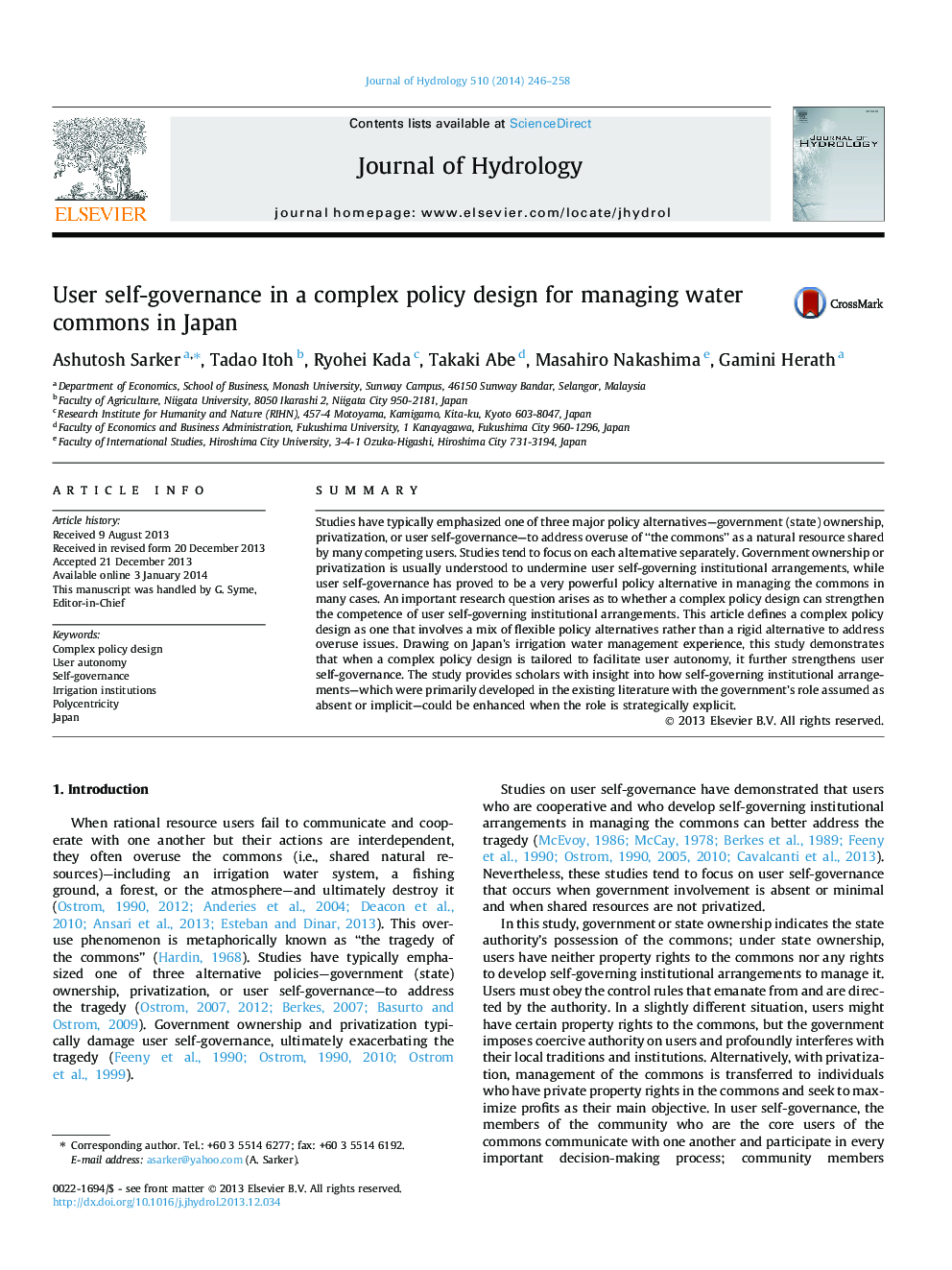| Article ID | Journal | Published Year | Pages | File Type |
|---|---|---|---|---|
| 6413198 | Journal of Hydrology | 2014 | 13 Pages |
â¢Complex policy design involves state, privatization and user self-governance.â¢Nonparticipatory state provides financial, technological, and statutory assistance.â¢Nonparticipatory state provides users with autonomy to self-govern their commons.â¢Complex policy design strengthens users' self-governing institutional arrangements.
SummaryStudies have typically emphasized one of three major policy alternatives-government (state) ownership, privatization, or user self-governance-to address overuse of “the commons” as a natural resource shared by many competing users. Studies tend to focus on each alternative separately. Government ownership or privatization is usually understood to undermine user self-governing institutional arrangements, while user self-governance has proved to be a very powerful policy alternative in managing the commons in many cases. An important research question arises as to whether a complex policy design can strengthen the competence of user self-governing institutional arrangements. This article defines a complex policy design as one that involves a mix of flexible policy alternatives rather than a rigid alternative to address overuse issues. Drawing on Japan's irrigation water management experience, this study demonstrates that when a complex policy design is tailored to facilitate user autonomy, it further strengthens user self-governance. The study provides scholars with insight into how self-governing institutional arrangements-which were primarily developed in the existing literature with the government's role assumed as absent or implicit-could be enhanced when the role is strategically explicit.
